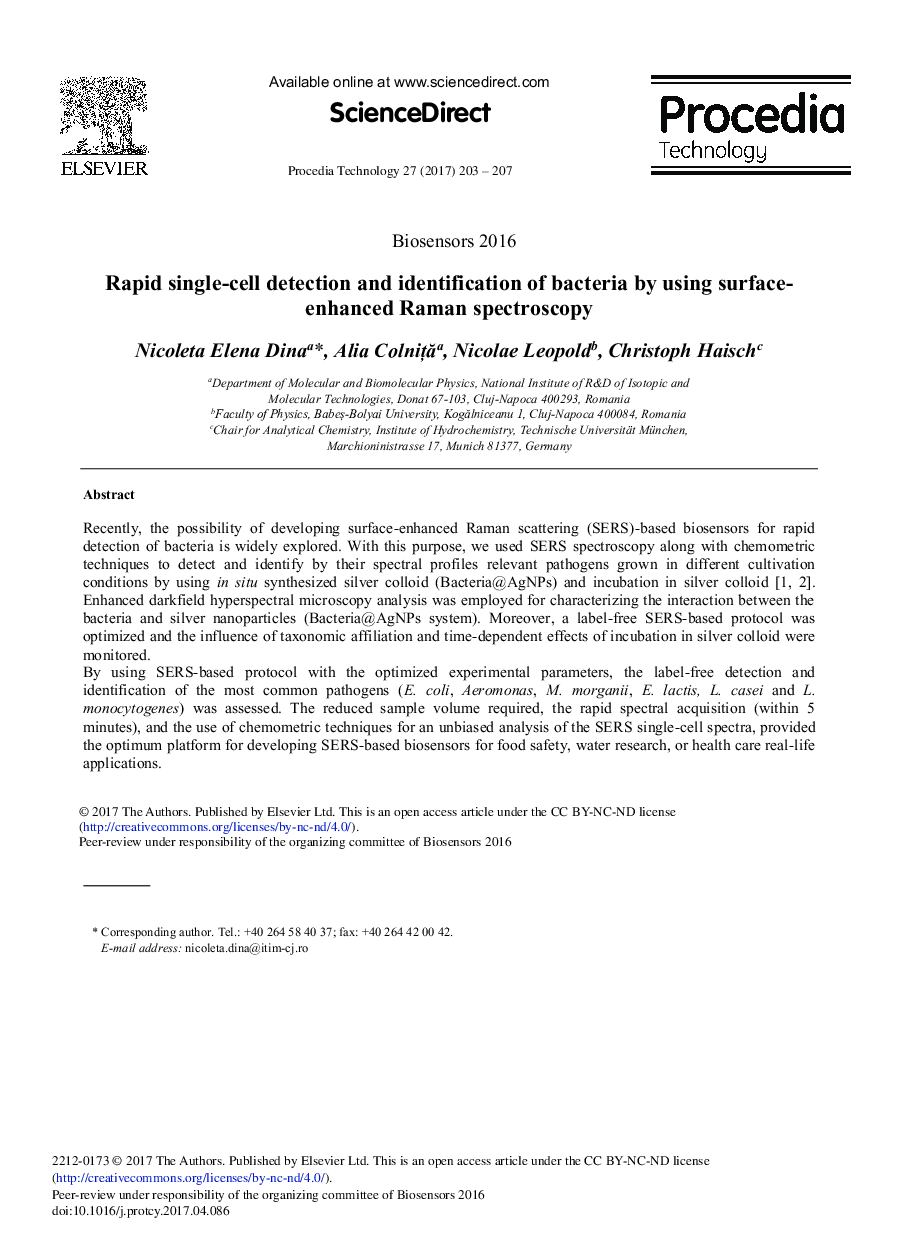| Article ID | Journal | Published Year | Pages | File Type |
|---|---|---|---|---|
| 4962409 | Procedia Technology | 2017 | 5 Pages |
Recently, the possibility of developing surface-enhanced Raman scattering (SERS)-based biosensors for rapid detection of bacteria is widely explored. With this purpose, we used SERS spectroscopy along with chemometric techniques to detect and identify by their spectral profiles relevant pathogens grown in different cultivation conditions by using in situ synthesized silver colloid (Bacteria@AgNPs) and incubation in silver colloid [1,2]. Enhanced darkfield hyperspectral microscopy analysis was employed for characterizing the interaction between the bacteria and silver nanoparticles (Bacteria@AgNPs system). Moreover, a label-free SERS-based protocol was optimized and the influence of taxonomic affiliation and time-dependent effects of incubation in silver colloid were monitored.By using SERS-based protocol with the optimized experimental parameters, the label-free detection and identification of the most common pathogens (E. coli, Aeromonas, M. morganii, E. lactis, L. casei and L. monocytogenes) was assessed. The reduced sample volume required, the rapid spectral acquisition (within 5 minutes), and the use of chemometric techniques for an unbiased analysis of the SERS single-cell spectra, provided the optimum platform for developing SERS-based biosensors for food safety, water research, or health care real-life applications.
